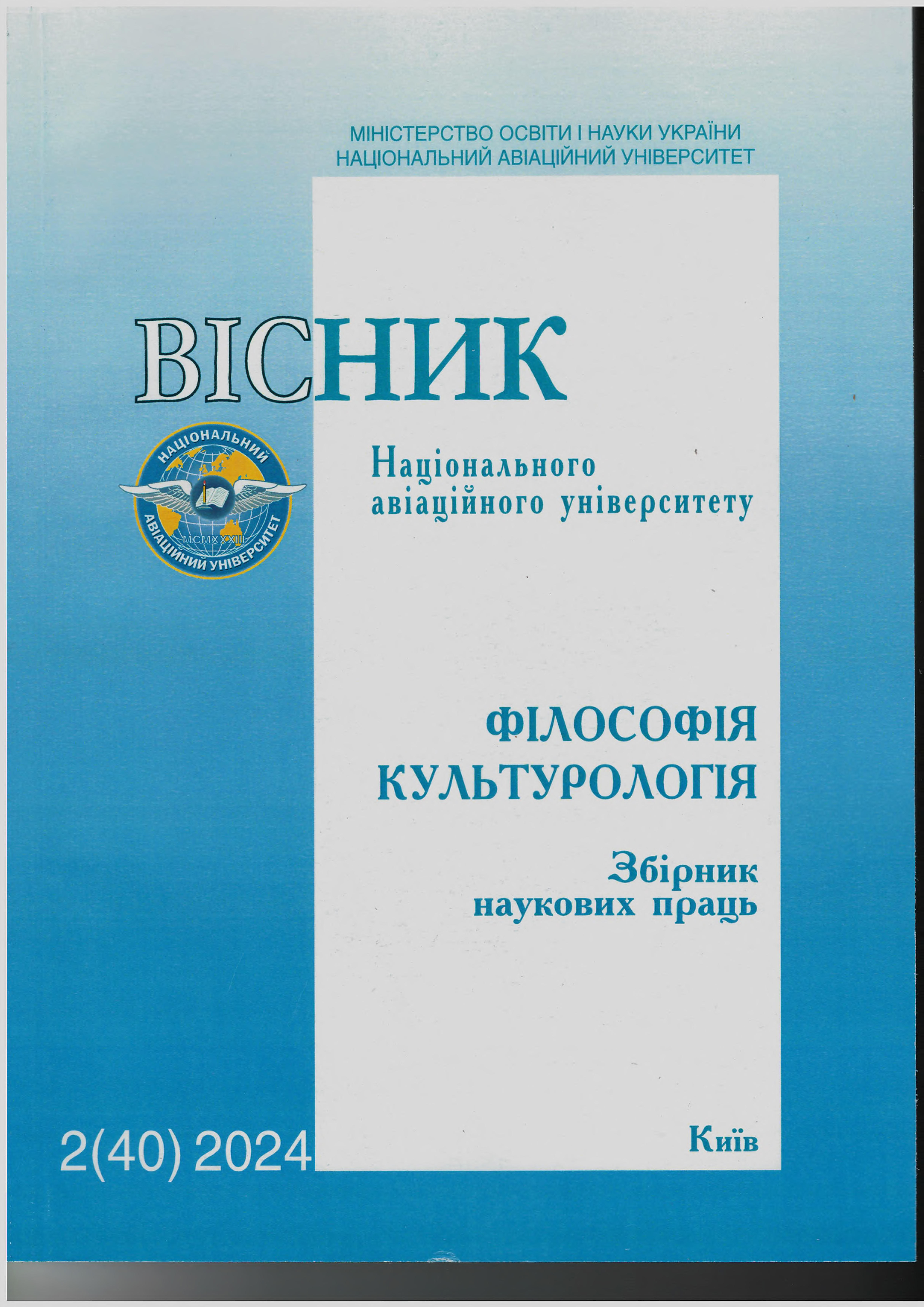THE COMMUNICATIVE DIMENSION OF ECONOMIC ACTIVITY IN THE CULTURE OF INDUSTRIAL SOCIETY
DOI:
https://doi.org/10.18372/2412-2157.40.19344Keywords:
industrial society, information society, culture, communicative space, communication, economic activity, tolerance, individual and social communicationAbstract
Human economic communication covers various dimensions: the realm of human society, relationships with other individuals, interactions with the natural environment, and engagement with the supernatural world. To philosophically comprehend the essence of the new cultural phenomenon of the Western world-economic man (Homo economicus) – it is essential to characterize the time of its emergence (modern history) as a social phenomenon. The aim of the article is to study the communicative dimensions of economic activity in the culture of an industrial society. Research methods encompass a dialectical approach, emphasizing the principle of the unity of logical and historical, along with socio-cultural determinism. Additionally, the principles of the systemic approach, communication theory, phenomenology are used. Research results.The communicative activity of the economic man of the New Age was carried out in the context of two domains of interaction: communication with the Supernatural and interaction with people who constituted a certain society. Such communication was also carried out through the prism of religious experience. Discussion. From a socio-philosophical point of view, the cultural phenomenon of Homo economicus, as well as the nature of his communicative processes, and its peculiarities, are primarily a social phenomenon of a concrete-historical character. This understanding is based on the relationship between the individual and the collective (social) in the essential nature of a person. The concept of the economic man inherently assumes the presence of others and views human essence as the product of active interaction with the socio-historical whole. Within this framework, objectification takes place. Conclusions. Analyzing the formation of the communicative dimension of economic activity in industrial society, we define the "economic man" as a socio-cultural phenomenon reflected in political economy, sociology, philosophy, and fiction. This phenomenon is evident in two aspects: the individual’s social and personal experience embodied in practical activity and self-reflection on life, socio-economic status, and relationships with the world. A socio-philosophical understanding of the communicative component of economic activity is essential, as the core principles and mechanisms of communication from the industrial era persist in the information society, helping to refine the communicative foundations of economic success
References
Бродель Ф. Матеріальна цивілізація, економіка і капіталізм, XV-XVIII ст. У 3-х т. Том 3. Час світу / Пер. з фр. Київ: Основи, 1998. 631 с.
Вебер М. Протестантська етика і дух капіталізму; пер. з нім. О. Погорілого. Київ: Основи, 1994. 261 с.
Гейлбронер Р., Туроу Л. Економіка для всіх. Львів: Просвіта, 1995. 215 с.
Дротянко Л. Г. Інформаційний простір і діалог культур в інтер’єрі ХХІ століття. Вісник Національного авіаційного університету. (Серія: «Філософія. Культурологія»). 2011. № 1 (13). С. 5-8. DОI: https://doi.org/10.18372/2412-2157.13.8312
Дротянко Л. Г. Цифровий вимір сучасного етапу цивілізаційного розвитку соціуму. Вісник Національного авіаційного університету. (Серія: «Філософія. Культурологія»). 2021. №1 (33). С. 16-21.
Загорський В. С. Концептуальні основи формування системи управління сталим розвитком еколого-економічних систем: монографія. Львів: ЛРІДУ НАДУ, 2018. 336 с.
Захарчук Н. В. Проблема культури та міжкультурної комунікації у філософсько-соціологічному аспекті. Вісник Національного технічного університету України «Київський політехнічний інститут». (Серія: «Філософія. Психологія. Педагогіка»). 2008. № 3 (24). С. 174–178.
Метеленко Н. Г. Складові концепції підприємництва та принципи сучасної ринкової системи. Інвестиції: практика та досвід. 2009. № 9 . С. 21-24.
Новаківський І. І., Висоцький А. Л. Еволюція зміни комунікаційного середовища підприємств в контексті сучасних концепцій розвитку економіки. Проблеми формування та реалізації конкурентної політики: Матеріали V міжнародної науково-практичної конференції. Львів: Ліга-Прес, 2017. 172 с.
Олексенко Р. І. Філософія ринкових відносин: навчально-методичний посібник. Мелітополь: ФОП Однорог Т. В. 2019. 311 с.
Проблеми формування та реалізації конкурентної політики: Матеріали V міжнародної науково-практичної конференції. Львів: Ліга-Прес, 2017. 172 с.
Сідоркіна О. М., Скиба О. П., Пода Т. А. Соціальна природа комунікативних процесів. Філософські обрії. Полтава: [б. в.]. 2019. Вип. 42. С. 54-58. URL: https://dspace.pdau.edu.ua/ server/api/core/bitstreams/027f9005-0378-4219-bf92-e8bf5becfe5c/ content
Скиба І. П. Специфіка комунікативних процесів в умовах інформатизації суспільства. Вісник Національного авіаційного університету. (Серія «Філософія. Культурологія»). 2024. № 1 (39). С. 69-74. DOI: https://doi.org/10.18372/2412-2157.39.18460
Соснін О. В., Михненко А. М., Литвинова Л. В. Комунікативна парадигма суспільного розвитку. Навч. посіб. Київ: НАДУ. 2011. 220 с.


